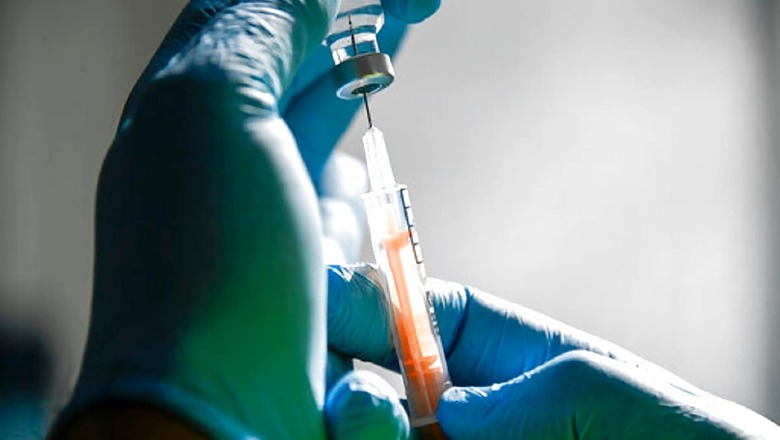
views
A single dose of either the Oxford AstraZeneca or Pfizer BioNTech vaccines, currently being administered in the UK, cut the rate of coronavirus infections by around 65 per cent, according to a new UK study.
A combination of two studies by the University of Oxford and the Office of National Statistics (ONS), which are yet to be published, also found that a single jab of the two-dose vaccines protected older and more vulnerable people almost as well as younger and healthier individuals.
The findings indicate a promising effect on hospitalisations and deaths from COVID-19 infections after vaccinations. But researchers caution that vaccinated people could still be re-infected and trigger an asymptomatic spread of the deadly virus, making the need for social distancing and face masks still crucial.
The researchers analysed Covid-19 test results from more than 3,50,000 people in the UK between December 2020 and April 2021 and found that 21 days after a first jab the time it takes the immune system to mount a decent response new covid-19 infections dropped.
Odds of new SARS-CoV-2 infection were reduced 65 per cent in those who had completed 21 days since first vaccination with no second dose versus unvaccinated individuals without evidence of prior infection, the study noted.
In those vaccinated, the largest reduction in odds was seen after the second dose (70-77 per cent). There was no evidence that these benefits varied between Oxford/AstraZeneca and Pfizer/BioNTech vaccines, it added.
The researchers, in the large community surveillance study, conclude that vaccination with a single dose of Oxford/AstraZeneca or Pfizer/BioNTech vaccines, or two doses of Pfizer/BioNTech, significantly reduced new SARS-CoV-2 [Covid-19] infections.
The second study, in nearly 46,000 adults who had been vaccinated with one dose, found strong antibody responses a sign that the vaccines are stimulating the body’s defence system to protect against the virus in all age groups. These antibody responses were “broadly sustained out to 10 weeks afterwards”, the researchers said.
“We don’t yet know exactly how much of an antibody response, and for how long, is needed to protect people against getting Covid-19 in the long term but over the next year, information from the survey should help us to answer these questions,” said Professor Sarah Walker, chief investigator on the studies, from Oxford University.
Both studies are based on data from the Covid-19 Infection Survey, a partnership between the University of Oxford, the ONS and the government’s Department for Health and Social Care (DHSC).
Read all the Latest News, Breaking News and Coronavirus News here. Follow us on Facebook, Twitter and Telegram.

















Comments
0 comment